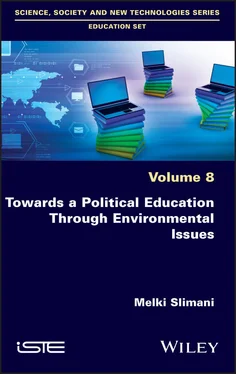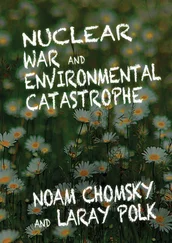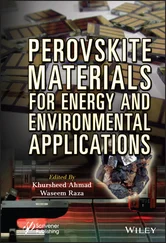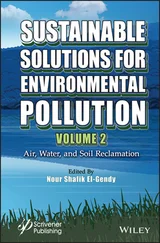Parallel to these popular movements, the international political scene also has a movement aimed at institutionalizing these mobilizations. The first wave of institutionalization took place within the framework of the 1972 United Nations Conference on the Human Environment in Stockholm, which was aimed at formulating expectations surrounding the link between environmental problems (resulting from the ecological crisis) and the development of human societies (Boutaud 2005). The second wave took shape within the World Commission on Environment and Development (1983–1987) leading to the “Brundtland Report 3”. This report made it possible to reformulate the environmental issue in the light of the interests and expectations of various stakeholders. The third was within the framework of the United Nations Conference on Environment and Development (UNCED) in Rio de Janeiro in 1992, leading to declarations and thematic conventions (the Framework Convention on Climate Change, the Convention on Biological Diversity, the Declaration on Forests and the Convention to Combat Desertification), Agenda 21 and the Millennium Development Goals (MDGs). The most recent wave gives rise to the Agenda 2030 in the form of 17 goals (with their targets and indicators) for sustainable development by 2030. This agenda, developed by UN expert groups, is reviewed by the Economic and Social Council (the body responsible for coordination and dialogue on economic, social and environmental issues) and then approved by the UN General Assembly (the deliberative and decision-making body).
In fact, in the international arena, several EDIs – such as those arising from agroecology – constitute “contested” territory between institutionalization movements and social movements. There are two camps of actors in the field of agroecology: the camp of the World Bank and its “allies” (agricultural universities, governments, private sector, etc.) on the one hand, and the camp of social movements (Latin American agroecology movement, Latin American Scientific Society of Agroecology, International Planning Committee for Food Sovereignty, etc.) on the other. These two types of actors mobilize two opposing visions: one that sees agroecology as a set of tools to perfect the technical procedures of modern agriculture, and another that sees it as an alternative which provides tools to transform agricultural policy monocultures (Giraldo and Rosset 2018).
In Tunisia, environmental struggles re-emerged in the period following the events of 2011. In fact, the context of political change which was triggered has been accompanied by the emergence of environmental social movements in a way that makes it difficult to characterize such movements, even in general terms (Vernin 2017). However, the frankly political imprint of these movements remains salient. It is also noteworthy that the political management of conflicts over state land shows a trend towards institutionalizing this type of mobilization in Tunisia. This institutionalization has taken the form of a project called “Promotion of Organizations and Mechanisms of the Social and Solidarity Economy” (PROMESS). The project, advanced by the Tunisian government in its cooperation with the International Labour Organization (ILO) and funded by the Netherlands, was spread over a four-year period from 2016 to 2019 (Mokadem 2018). The creation of a legal and institutional framework specific to the social and solidarity economy is one of the main axes within this project. A draft law 4on the social and solidarity economy was already being finalized by the Ministry of Social Affairs by May 2018.
Field studies of environmental mobilizations show that these practices are part of an informal 5political education through the learning that develops among the actors who take part in it (Seguin 2015). These civic apprenticeships (Biesta 2011) on conflict and the construction of collective agreements through participation and deliberation form an informal educational process of socialization for a democratic citizenship. According to Kluttz and Walter (2018), these mobilizations involve three interconnected levels of informal political learning:
– the first level, which is microscopic, corresponds to learning that takes place in self-directed situations (individual study of environmental issues, for example), in situations where activists observe and experiment, or in situations where activists participate in conversations during workshops organized by non-governmental organizations;
– the second level, which is mesoscopic, includes the learning that takes place when activists, in elaborating their strategies to combat an issue, consider their experiences in a broader context that integrates the experiences of other activists;
– the third level, which is macroscopic, corresponds to the political learning that takes place when activists interact with their allies or opponents (police, government institutions, businesses, etc.) in forming their petitions.
In non-formal education, Eco-Schools are one of the pioneering schemes (founded in 1994 in Denmark) that have been implemented around EDIs. In several countries 6around the world, this initiative has been developed in primary, middle and high schools (eco-schools) and universities (eco-campuses). It consists of learning support on six priority topics (food, biodiversity, waste, water, energy, social support) for the concrete implementation of sustainable development in educational institutions in partnership with the local community and the students’ parents.
Non-formal education around EDIs is also affected by international educational policies. Historically, the latter shows two successive cycles of “educational institutionalization” taking the form of two recommended mechanisms that have succeeded one another over time: the Decade of Education for Sustainable Development (2005–2014) and Education for Sustainable Development Goals.
In formal education, EDIs are covered by disciplinary curricula. In France, three school and/or academic disciplines deal with these questions: life and earth sciences, which take on the environmental dimension; economics, which takes on the economic dimension; and geography, which takes on the social dimension (Simonneaux 2011). Vergnolle Mainar (2008, 2009) notes that geography and life and earth sciences are the two disciplines that overlap the most with the environmental approach. This author also identifies areas of interdisciplinarity in the school disciplines concerned with the environment, which she differentiates into two groups: disciplines which have a significant overlap with environmental topics (life sciences, earth sciences and geography) and disciplines which are fairly unrelated to environmental topics (physics, chemistry, mathematics, technology, physical education and sport, history, civic education, economic and social sciences, French, philosophy, artistic disciplines and languages). The Tunisian context presents almost the same characteristics when it comes to school disciplines involving environmental issues.
The two international educational policy cycles mentioned above, as well as the disciplinary curricula, constitute inflections allowing the passage from informal education in ecological mobilizations to non-formal education or to formal education. Moreover, aspects in this educational trilogy can be hybridized as the line between formal, non-formal and informal becomes increasingly blurred (Barthes and Alpe 2018).
Several research programs on the links between the political and content involving EDIs in formal and non-formal education are being implemented around the world. Research in the Americas has focused on the interactions of formal and non-formal environmental education (e.g. for adults) with the dominant neoliberal political and economic context (Hursh et al . 2015; Stahelin et al . 2015). They open up a discussion of pedagogical practices and content that teachers can use to help learners develop forms of environmental citizenship that actively challenge the neoliberal privatization of environmental responsibility (Dimick 2015).
Читать дальше












